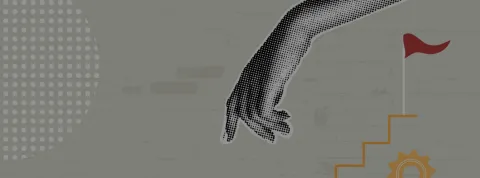
Soft skills vs. hard skills: which matter more in today’s job market
The term soft skills began to surface in conversations about employment and talent a few decades ago, when companies realized that knowing how to program, sell, or design is no longer enough. It emerged as a way to name abilities such as communicating, adapting, working in a team, or leading. In contrast to hard skills—those technical, measurable, objective skills—soft skills introduced a new vocabulary for discussing human potential in the workplace.
But it’s not about choosing one over the other. Hard and soft skills are mutually dependent. Knowing how to use a digital tool is valuable, but knowing when, how, and with whom to use it is what transforms a good result into a great project.
If you’re interested in continuing to develop your talents with a comprehensive, future-oriented perspective, we invite you to explore what Planeta Formación y Universidades has to offer.
Soft skills and hard skills: what they are and why they matter
For a long time, when people talked about being “good at your job,” the conversation almost always revolved around technical abilities: knowing how to code, speak languages, use Excel, or understand finance. These are the so-called hard skills—skills you learn through a course, at university, or directly on the job—and they are relatively easy to measure.
But in recent years the focus has shifted. Companies have realized that a team’s success depends not only on how many degrees or diplomas its people hold, but on how they interact, communicate, and solve problems together. That’s where soft skills come in: truly listening, adapting to change, collaborating as a team, staying calm under pressure, and approaching challenges with a positive attitude.
Why companies value both types of competencies
Today, human resources departments look for people who know how to do their job—and also know how to work well with others. Hard skills guarantee you can complete specific tasks; soft skills determine how you fit into a team and handle everyday challenges.
A programmer may write flawless code, but if they can’t clearly explain an idea or listen to feedback, the project can stall. A nurse might master medical techniques, but if they can’t convey calm and empathy to a patient, the outcome won’t be the same.
If you’re thinking of steering your professional future toward human resources, where soft and hard skills are constantly intertwined, you can explore specialized programs at Planeta Formación y Universidades. You will find paths that combine technical expertise in people management with development of essential transversal skills for leading teams in fluid environments.
Hard skills vs. soft skills: key differences
How they are acquired and how they can be measured
Hard skills are built methodically—through training, online courses, certifications, or direct practice. They are easy to demonstrate: a degree, a technical assessment, or a portfolio will do. They are concrete, measurable, and upgradable. Soft skills, by contrast, are developed through practice and experience. You cultivate them by working with others, listening, handling conflict, making mistakes, and trying again.
More organizations are now using behavioral interviews—questions about how you handled real situations—or 360-degree feedback systems to assess these skills. They’re harder to quantify, but their impact on the work environment is immediately felt.
Are they mutually exclusive or complementary?
It’s not a matter of choosing one or the other. Hard and soft skills function together within you: one provides the tools, the other teaches you how to use them effectively.
A brilliant engineer who can’t communicate well might miss out on major opportunities. And someone who is charismatic but lacks technical grounding may have great ideas but no way to execute them. Real value arises when both spheres are balanced.
Indeed, an increasing number of studies show that people who combine both kinds of skills see the most professional growth. They are flexible profiles, able to adapt and contribute beyond the expected.
Differences depending on the role or industry
The relative importance of each skill type varies by role. In technology or engineering, technical skills are essential early on: you need to know how to do things. But as someone begins managing projects or leading teams, soft skills become pivotal.
In sectors like education, healthcare, or customer service, soft skills carry huge weight from the beginning. Empathy, listening, and communication are as integral to the role as technical knowledge.
In companies with horizontal structures or in highly dynamic environments—such as startups or innovation projects—the balance between both is critical.
Which competencies carry more weight in today’s job market
The job market has undergone a significant shift in recent years. Mastering a tool or deeply understanding a technical process is no longer sufficient: companies now seek individuals who can learn quickly, collaborate effectively, and stay composed when things change direction. According to a Hays study, over 60% of companies recognize that soft skills carry as much or more weight than technical skills in hiring.
The rise of soft skills in the age of automation
Automation has transformed how we work. Repetitive tasks are now handed over to technology, leaving space for what only humans do well: making informed decisions, resolving conflicts, generating new ideas, and working with emotional intelligence.
Skills such as empathy, emotional regulation, or communication are rapidly gaining ground across virtually every sector. In technological fields, for instance, the most innovative teams are not those with the greatest number of technical experts, but those that know how to coordinate, share knowledge, and maintain motivation amid uncertainty.
What recruiters and HR leaders think
When you speak with recruiters, they all agree: attitude weighs as much as experience. If two candidates are technically equal, the one who demonstrates curiosity, communication skills, and collaboration has a much stronger chance.
That’s why many companies are changing their selection processes. They’re not focused solely on the resume anymore—instead, they consider how candidates solve problems, react to mistakes, or integrate into a diverse team.
Moreover, increasing numbers of companies invest in internal training to cultivate these skills within their teams.
Trends: soft skills as a key advantage in times of change
Those organizations that rely on teams with strong soft skills often fare best during crises. Not because they have all the answers, but because they have people who know how to find them together.
In emerging sectors such as artificial intelligence or sustainability, recruiters value the ability to learn and collaborate more than specific credentials.
How to strengthen your hard and soft skills throughout your career
Developing your skills isn’t something you accomplish overnight. It takes intention and practice:
- Continuously update your technical knowledge. Choose one or two key areas in your field and stay current through short courses, podcasts, or online certifications.
- Refine your communication style. Listen more than you speak, take notes, and aim to explain your ideas clearly. Good communication amplifies the value of your knowledge.
- Ask for feedback regularly. Invite colleagues or supervisors to share your strengths and areas to improve. Listening without defensiveness is itself a powerful skill.
- Get out of your comfort zone. Join projects outside your usual domain. Collaborating across teams or in cross-functional initiatives forces you to learn new working methods.
- Master self-management. Organize your time, learn to prioritize, and set boundaries when necessary. Productivity isn’t about doing more—it’s about doing better.
As you grow, your hard and soft skills will develop together. One gives you the tools; the other guides you to use them meaningfully.
Conclusion
In the end, balancing technical skills and human skills is not about choosing one or the other—it’s about learning to combine them. Hard skills help you do your job effectively; soft skills teach you to do it with composure, empathy, and common sense. What truly sets you apart isn’t just what you know—it’s how you apply it, how you work with others, and how you tackle challenges.
At Planeta Formación y Universidades, we believe in this approach to learning: more holistic, more humane, and better equipped for what lies ahead. That’s why we support professionals at every stage of their journey, integrating knowledge, practice, and personal growth.
